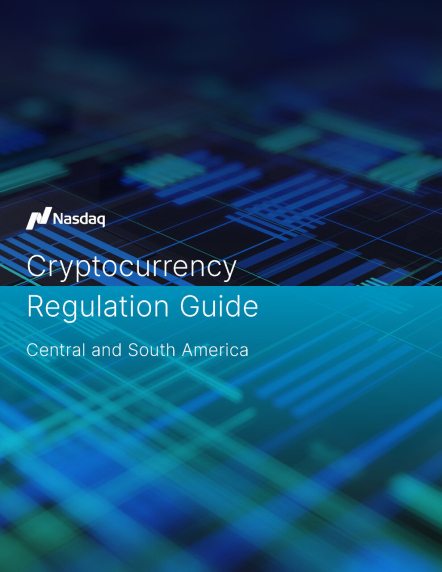Chile
The Securities Market Act and the Competition Act govern specific public offerings and promote free competition in the markets.
Overview: This law governs the public offering of securities, secondary markets, stock exchanges, brokers and other matters. In addition, it applies to banks that are authorized to act as securities intermediaries.
Overview: The purpose of this law is to promote and defend free competition in the markets.
Regulation of cryptocurrency varies globally by region, jurisdiction, and regulatory body. Nasdaq’s comprehensive and updated Cryptocurrency Regulation Guide Central and South America provides a snapshot of recent recommendations from international regulatory and standards-setting bodies as well as key developments in Central and South America.
Stay up to date with evolving crypto regulations.
Read Nasdaq’s comprehensive and updated guide to learn about all the major policies of Central and South America that govern the regulation of crypto assets.
Please check your inbox to read the Central and South America Cryptocurrency Regulation Guide.


Based on the recent Alerts Guide publication by BSM, the Nasdaq Trade Surveillance (NTS) team analyzed how the current NTS alert coverage and framework aligns with key focus areas suggested in the BSM Alerts Guide (Atypical Transfer of Funds; Insider Trading; Layering; Spoofing; Front Running).
Download the guide to learn more about how you can prepare yourself for BSM's expectations.
Download the guide to learn more about how you can prepare yourself for BSM's expectations.
Please check your inbox to read Practical Guide: BSM Alert Guide.